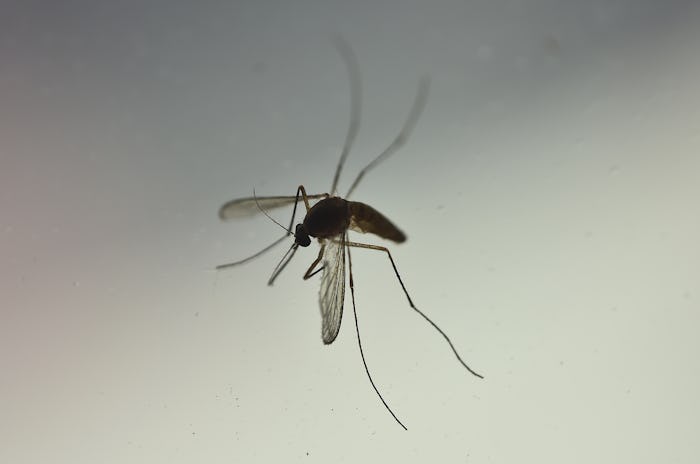Life

When Will The New Malaria Vaccine Come Out? Clinical Trial Results Are Promising
There may finally be a way to offer long-term protection against one of the world's most dangerous diseases. The results of a new clinical trial suggest a malaria vaccine might be here pretty soon. When will the new malaria vaccine come out? There's a lot more research to do, according to TIME, but the trial findings indicate major progress toward widespread disease prevention.
The National Institutes of Health and the University of Maryland School of Medicine teamed up with for-profit Sanaria Inc. to develop the vaccine, TIME reported. During the Phase 1 malaria vaccine trial, they had a control group of 32 adults and gave the vaccine to 59, according to Irish Mirror. The researchers exposed all of the volunteers to malaria via mosquito bites. Ultimately, they found that about half of the people who received the PfSPZ vaccine appeared to be protected for approximately one year, TIME reported, which is a huge improvement from the three weeks of protection the vaccine offered in the past.
Though the World Health Organization reported that the disease is both "preventable and curable," ongoing malaria transmission is still common in 95 countries and territories (as of 2015). Last year, Sub-Saharan Africa saw 90 percent of malaria deaths. Part of the problem is the difficulty of diagnosis: symptoms such as fever and vomiting generally take a week to appear after a mosquito bite and may be incorrectly associated with a different illness. If malaria is allowed to progress without treatment, it can become deadly in as little as 24 hours.
Another challenge is that many of the methods used to prevent malaria are imperfect and haven't been updated in decades. Individuals in affected areas often use insect repellent or hang bed nets to protect against mosquitos, according to Mirror Online. A successful vaccine may offer a more consistently reliable solution.
Malaria is a tricky enemy. There are five types that endanger humans, according to The Economist. The deadliest is plasmodium falciparum, the same one used in the vaccine trial. Unfortunately, both the parasites and the insects that carry them develop resistance frighteningly easily. Previous attempts to tackle malaria on a wide scale have sometimes been thwarted by that resistance, including strategies involving the use of DDT for mosquito eradication. Existing antimalarial medications are not universally effective; when a strain outsmarts the medication, it can be difficult to treat. Despite the challenges inherent in tackling malaria, the PfSPZ vaccine may open a new pathway to beating the disease.